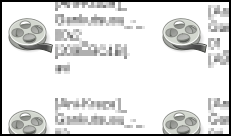 I’ve got a evil plan to write a Firefox/Thunderbird plug-in to store passwords in the GnomeKeyring or some other desktop-wide place instead of the build-in Password Manager.
I’ve got a evil plan to write a Firefox/Thunderbird plug-in to store passwords in the GnomeKeyring or some other desktop-wide place instead of the build-in Password Manager.
My particular itch to scratch here is that I’m tired of having to type my master password every time I open up Firefox or Thunderbird. Thunderbird in particular has a bug where I have to type the password multiple times.
Another Idea that I have is to wrote some kind of a desktop service that will automatically go to various sites like Facebook and WordPress and automatically change my password while storing an updated copy in the keyring.
So here are several useful resources to help me accomplish the task:
- The XUL School Tutorial – A sea of information about how to write old-style Mozilla plug-ins.
- The Mozilla Addon Builder and SDK – The new way to write Mozilla add-ons, this may or may not be a sufficient API for my needs.
- The Mozilla Password Manager source code – I need to read this to understand how to tap into it.
